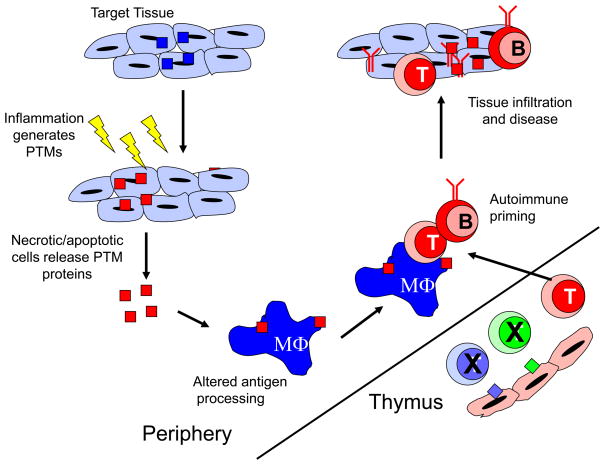Figure 2.
Posttranslationally modified proteins initiate autoimmune responses. Posttranslational modifications can occur in self-proteins during cellular stress, such as inflammation, ageing or apoptosis. These PTM self-proteins are then released from necrotic or apoptotic cells, where they are phagocytosed by antigen presenting cells (APC), such as macrophages. Once inside the APC, the presence of these modifications can alter how proteases cleave the self-antigen, thereby generating new epitopes. These modified peptides are then presented in the context of MHC class II molecules to T and B cells that have escaped the thymus or bone marrow during negative selection because the modified peptide is not present in those organs. Finally, autoreactive T cells and B cells infiltrate host tissue and induce autoimmune pathology.

